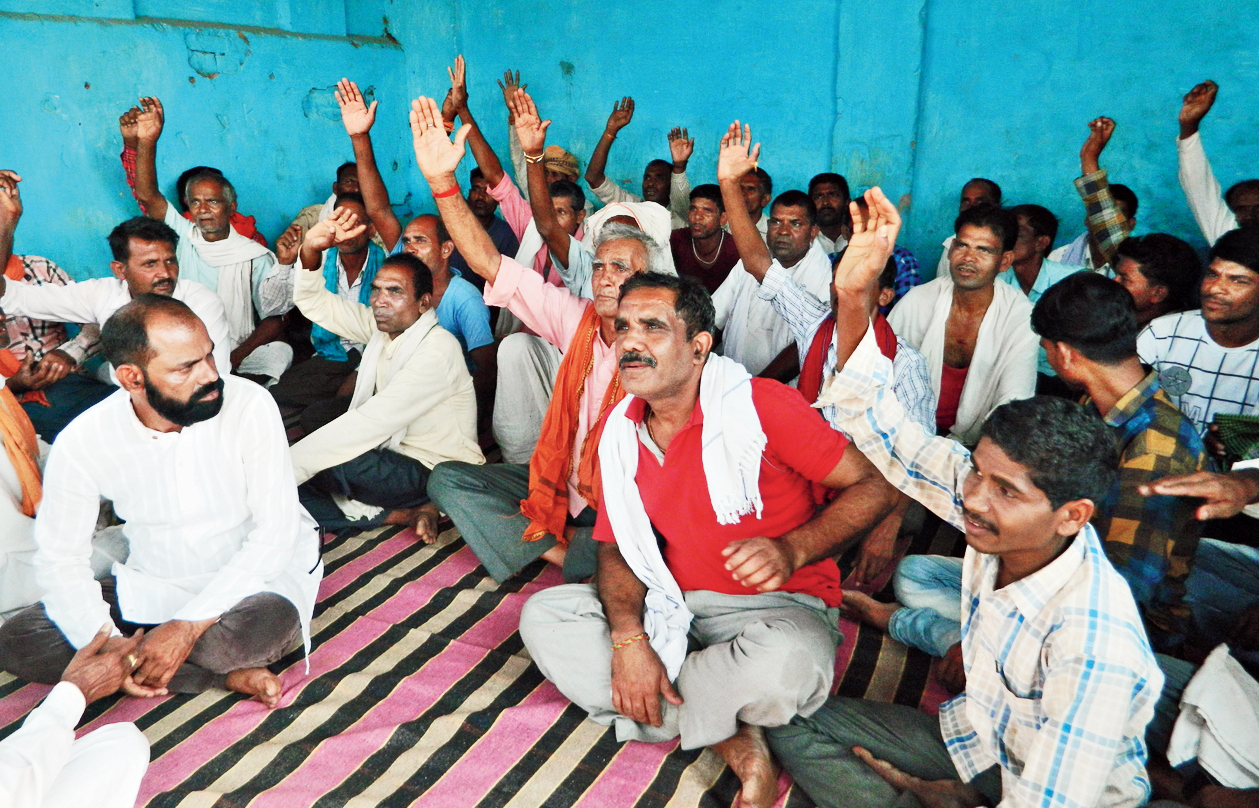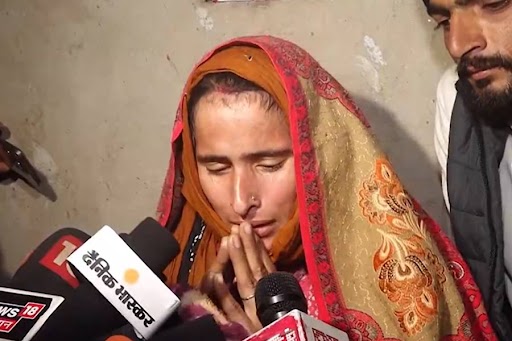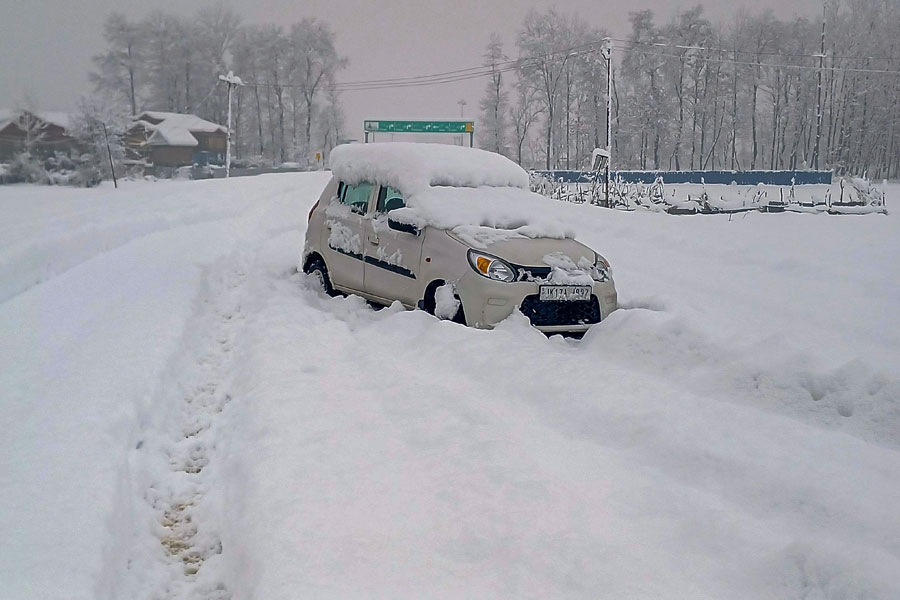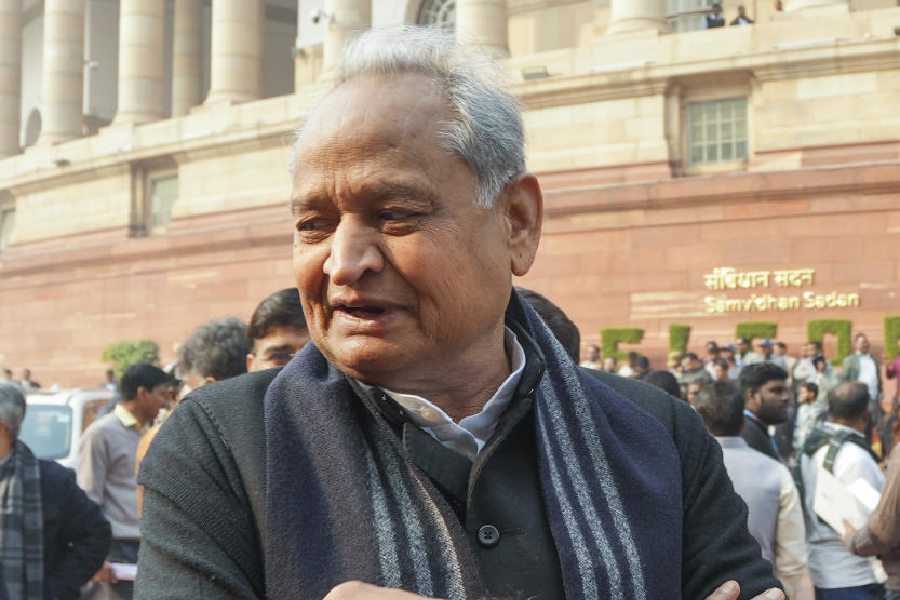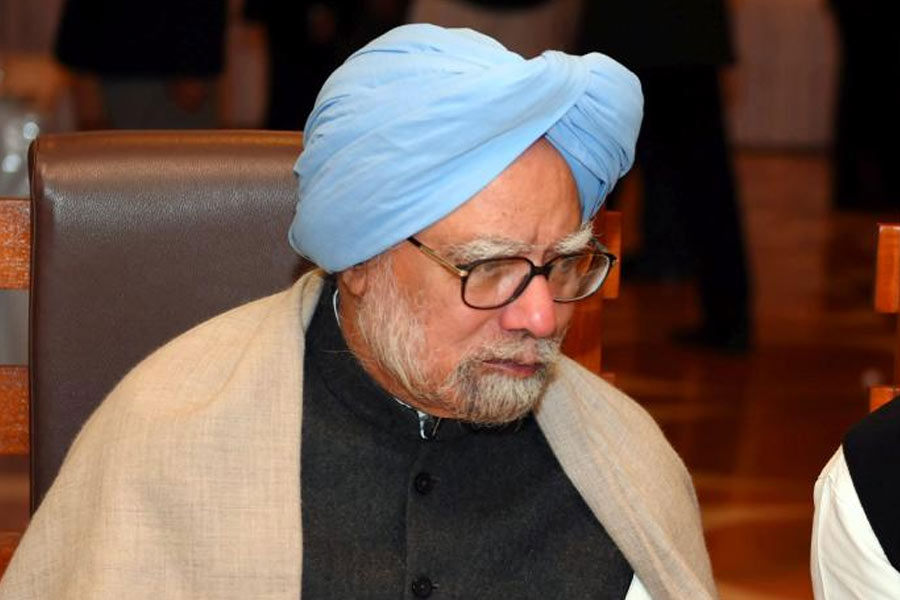Sujit Jharia had come home to Mandla’s Birsa village to vote, but joined a protest instead.
By 4pm on Monday, only 81 out of 435 voters in this predominantly Dalit village had voted. Of the rest, the women stayed home and the men raised slogans demanding rehabilitation until local MP and former BJP minister Faggan Singh Kulaste arrived.
“After elections, the (Union) cabinet can take a decision to grant resettlement,” Kulaste told The Telegraph. “In the last five years, work on six highways through Mandla has been started. The Congress can’t compete with us on development.”
Birsa’s farmland is to be submerged by the Halon dam. The dam — for irrigation — was to be completed in 2012. While Birsa’s residents — Jharia Dalits, Gond tribals, and Brahmins — have been sanctioned compensation for their lands, the villagers say they are left without a livelihood; their fields have been dug up for the dam.
“We raised two crops of paddy a year, in addition to sharecropping; there was enough to eat,” said Sujit, who, like most youths here, has not passed school. “Now I make between Rs 100 and Rs 300 a day cutting wood in Bhilai. I came back to vote because this is one way to make politicians hear our voice. I am in the protest because no party has resettled us so far.”
At least 70 under-30 men from Birsa like Sujit work in other states as daily wage labourers. Mandla journalist Salil Ray estimated that around a quarter of the electorate here are migrant labourers. “On any given day you will find men here taking buses to an uncertain future in cities. There have been at least four cases of women being trafficked too. There are simply no jobs to keep them back here. Agriculture is unstable here,” he said.
Narmada and its tributaries such as Halon flow through Mandla, and tendu leaves — used in bidis — are the main source of income.
Birsa has wild lotus growing but the villagers are unaware of its commercial gains. Agitations of people displaced by older dams such as Bargi have continued here for three decades.
Ray said that around two dozen protest calls were resolved by revenue officials on Monday, most of which were for basic needs — rations, water, and housing grants.
The Mandla Lok Sabha seat is reserved for STs. Kulaste has been MP since 1996, except once in 2009 when he lost to the Congress. The Congress has fielded former Gondwana Gantantra Party leader Kamal Maravi this time.
“If at all anyone can resettle us, it is the Congress,” said Shiva Singh Paraste, a Gond peasant. “We saw the BJP ignore us for all these years. Some of us have either paid or been asked to pay bribes to BJP leaders (when they ruled the state until last December) and to revenue officials to extend the submergence line to include our homes.”
After Kulaste spoke to the protesters, they agreed to vote. Later, they began arguing with each other if a vote boycott is the way forward.
“We met (former Madhya Pradesh chief minister) Shivraj Chouhan thrice since the project started,” said Jinesh Tiwari, a Brahmin farmer. “We didn’t oppose the dam, yet we are not being resettled. After the Assembly polls, we called the new (Congress) MLA (Narayan Patta) who brought the collector along. The dam officials said they don’t have the power to declare us submerged, and the MLA said he will ask (chief minister) Kamal Nath to intervene. We are happy with Modiji but his leaders are not helping us.”
Congress leader Rewa Ram Sahu told the villagers: “A boycott is a boycott only if nobody votes. People have voted already. Once the polls are over, Kamal Nath will resettle you.”
Sadhna Tiwari, who watched the protest, had a different concern. “Both my sons passed Class XII. There are just a dozen boys who have. They work as casual labourers now at the dam. I hope any of these leaders create jobs here,” she said.

